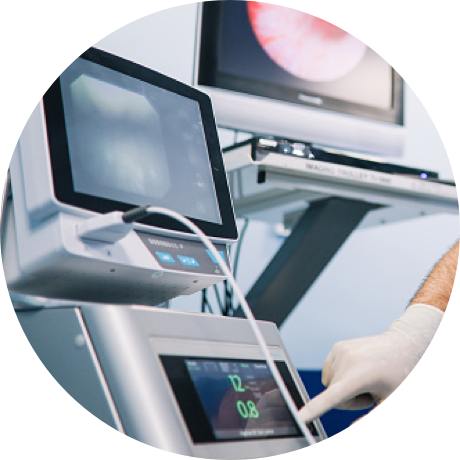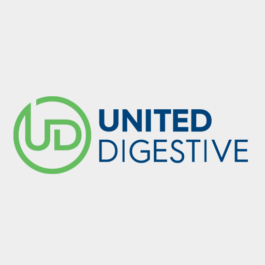Screen4ColonCancer
About the Direct Access Program
Our goal is to make access to screening colonoscopies easier – and save you time. The Direct Access Program identifies those adults who qualify for a screening colonoscopy without the need for a pre-procedure office visit. Based on your current medical condition and your answers to our quick, HIPAA-compliant questionnaire, you may be eligible to directly schedule your procedure without the need for a pre-procedure physician consultation.
PROGRAM ADVANTAGES
- A secure questionnaire – which can be completed anytime, anywhere – helps determine your eligibility.
- Pre-existing conditions can be identified to ensure you receive the most appropriate care.
- You save time and money (no office visit means one less co-pay).
- You get a potentially life-saving screening.
- If you qualify, a representative will contact you to schedule your procedure. If you do not qualify due to existing medical conditions, you will be contacted to set up an appointment with a physician before your colonoscopy can be scheduled.
We know having a colonoscopy isn’t something people get excited about. But preventing colon cancer should be.
Why Get Screened?
Colorectal cancer is ranked as the second leading cause of cancer death in the U.S. for men and women combined, and the lifetime risk of developing colorectal cancer is about 1 in 24. But, when detected in its early stages during a colonoscopy, colon cancer is one of the most highly treatable and preventable cancers. In fact, research has shown that many colon cancer deaths could have been prevented with a screening.
When should you get screened?
Because the risk of getting the disease increases with age, screening colonoscopies are now recommended for every adult beginning at age 45.* For those with a family history of the disease, or other risk factors, screening could start even earlier. For example, if a close family member – like a mother or father – was diagnosed with colon cancer at age 50, the children of those parents should get screened 10 years before the age they received their diagnosis – at age 40.
*American Cancer Society
While there is evidence that more people are getting screened than in previous years, one in three people who should be tested have never been screened.
About Colonoscopies
A colonoscopy is considered the single best method for detecting and preventing colon cancer.
Performed under light sedation, a colonoscopy is a procedure that allows a gastroenterologist to look at the inner lining of your large intestine – or colon. The physician uses a thin, flexible, lighted instrument called a colonoscope to visually inspect your colon for inflamed tissue, ulcers, bleeding, and any abnormal growths (polyps). Not all polyps found during a screening are precancerous or cancerous, but over time, they can grow and become cancerous. So, when polyps are found, they are removed at the same time to prevent cancer from forming.

FAQs
Because the risk of getting the disease increases with age, screening colonoscopies are recommended for every adult beginning at age 45.* For those with a family history of the disease, or other risk factors, screening could start even earlier. For example, if a close family member – like a mother or father – was diagnosed with colon cancer at age 50, the children of those parents should get screened 10 years prior to the age of the parent’s diagnosis – at age 40.
*American Cancer Society
Your colon must be completely empty for the colonoscopy to be thorough. You will be on a clear liquid diet for at least one day before the procedure. Then you will be asked to drink a liquid solution – or ‘prep’ – that will flush the colon. This is a critical step in the process since the doctor must be able to see the entire colon during the procedure. A list of detailed instructions will be provided before your procedure.
The entire process – from check-in to check-out – typically takes about two hours. The colonoscopy itself usually takes about 25 to 30 minutes. You should plan to rest for several hours after the procedure.
On the day of your procedure, our nursing staff and an anesthesia provider will review your medical history. Once the anesthesia provider deems that you are a suitable candidate for deep sedation, you will be taken to the procedure room on a stretcher. Your anesthesia provider will then place monitors on you that allow us to monitor your vital signs throughout the procedure.
The vast majority of patients will receive Propofol, a safe, short-acting IV (intravenous) anesthetic that is used to render you temporarily unconscious as you continue to breathe on your own. In the rare instance that medical issues prevent you from having sedation with Propofol, you will receive conscious sedation medications that allow you to relax but will not render you unconscious. Our anesthesia professionals, a team of anesthesiologists and anesthetists, work hard to promote an environment of safety.
Once asleep, your gastroenterologist will insert the colonoscope into the rectum and skillfully navigate around your colon. There are several tiny instruments in the long, flexible scope that help the physician during the procedure: one to inflate your colon for improved visibility; one to identify and remove polyps or other abnormalities that may be present (i.e. ulcers, areas of inflammation), or take biopsies; and one to flush the area clean. After the procedure, you may experience a little discomfort, like the feeling of having gas, but that soon subsides.
Your physician will explain the findings to you. If a biopsy was performed or a polyp removed, you should get the results in about two weeks. Your physician may give you other special instructions as needed. Even though you should feel fine, you must have someone else drive you home after the procedure because of the sedation. You should not drive, operate heavy machinery, or make important decisions for up to eight hours after your procedure. Most people resume a normal diet after the procedure.
Serious complications from this procedure are very rare. Of course, as with any medical procedure, they can occur. Complications might include excessive bleeding, especially if a large polyp was removed, or, in rare cases, a tear in the lining of the colon, which might require hospitalization or surgery. Again, these complications are rare. Your physician will review the risks with you before the procedure.
If there is a specific physician you would like to perform your procedure with, a representative can check to see if that doctor participates in the Direct Access Program when you schedule your procedure. If that doctor is not available, the representative will review the physicians and endoscopy center locations that best fit your needs.













